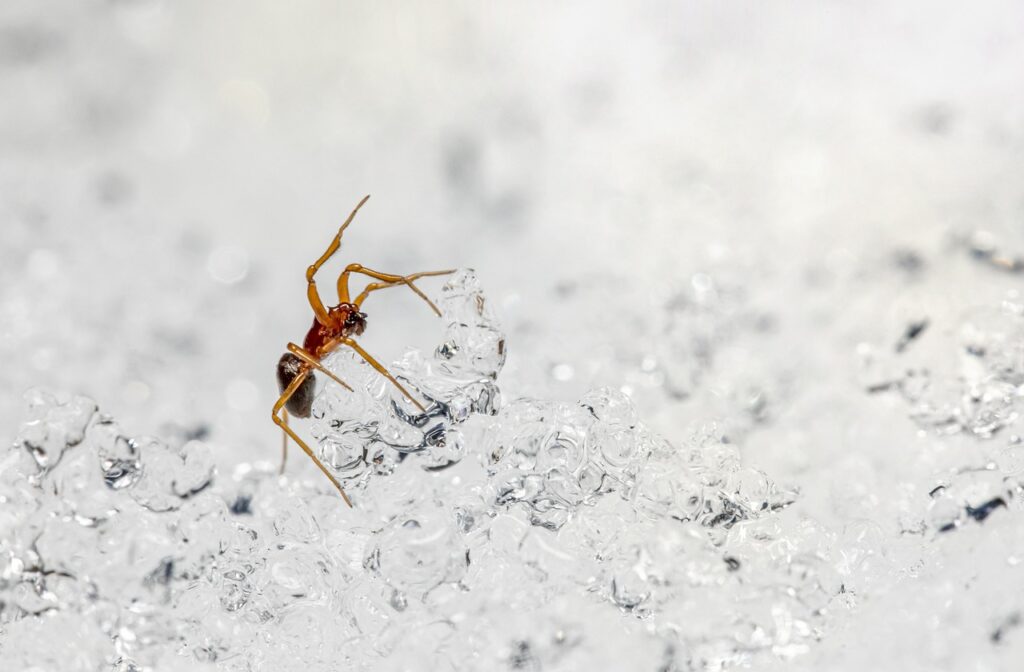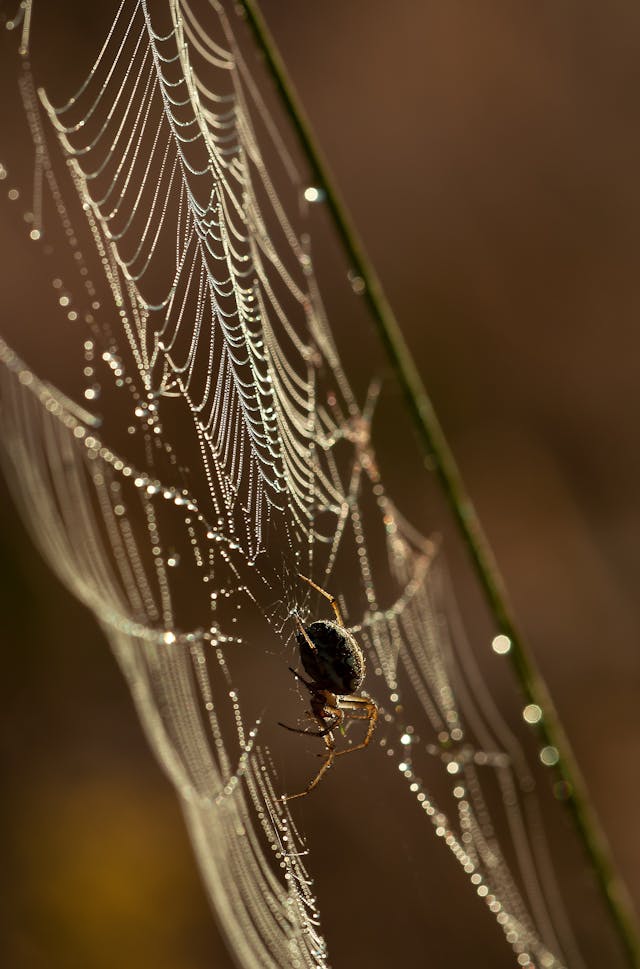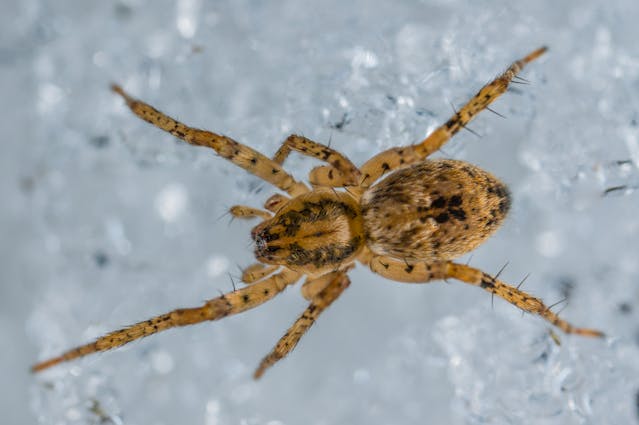
Updated April 15, 2025
Spiders are fascinating creatures with remarkable survival strategies, but what happens to spiders in winter? Do spiders die in the winter, or do they have ways of surviving the cold? Understanding spider behavior during colder months can help you keep them out of your home and appreciate their role in the environment.
Introduction to Spiders
Spiders are arachnids, a class of air-breathing, eight-legged invertebrates. There are more than 45,000 species of spiders worldwide, with more than 3,000 species found in the United States. Spiders are found in a variety of habitats, from deserts to forests to urban areas. They are mainly predators and feed on a variety of insects and other small animals.
Spiders have a unique anatomy, with two body parts – the cephalothorax and the abdomen – and eight legs. They also have silk-producing glands, which they use to create webs and other structures. Spiders have compound eyes, which they use to detect movement and light.
Overview of Spider Reproduction

Spiders reproduce both sexually and asexually. In sexual reproduction, two spiders mate, and the female produces eggs which are then fertilized by the male. In asexual reproduction, a single spider produces offspring without mating.
The reproductive process varies depending on the species of spider. Some spiders lay eggs in a sac, while others lay eggs in a web. Some species of spiders even carry the fertilized eggs around with them.
Spider Life Cycle
Spiders start off as eggs and emerge as spiderlings. The number of eggs produced by a female spider can range from a few to several thousand. The eggs hatch into spiderlings, which are tiny versions of the adult spider.
The spiderlings then molt several times, shedding their outer layer of skin and growing larger with each molt. They will continue to molt until they reach adulthood. At this point, they are ready to reproduce and start the cycle again.
Do Spiders Die in the Winter?

Not all spiders die off when the temperature drops. Some do, but many have developed incredible ways to survive the winter.
Outdoor spiders often lay eggs in the fall and then die shortly after. Their eggs stay safe through the winter in protective sacs, waiting to hatch when spring arrives. But adult spiders aren’t always wiped out by the cold.
Some species enter a state called diapause, where their metabolism slows down significantly to conserve energy until warmer weather returns. Others produce natural antifreeze proteins to prevent their bodies from freezing.
Indoor spiders are even more resilient. Since they often live in temperature-controlled environments like homes, garages, and basements, the cold doesn’t affect them much. They can stay active all winter as long as they have access to food.
While some spiders die in the winter, many survive just fine by hiding, going dormant, or thriving indoors where the cold can’t reach them. Understanding their survival tactics can help you keep them out of your home when temperatures drop.
How To Keep Spiders Out Of Your House In The Winter

If you’re tired of dealing with spiders in winter, there are simple but effective steps you can take to keep them out of your home. Cold weather drives spiders indoors in search of warmth, so staying proactive is key.
- Seal Entry Points: Spiders are experts at sneaking through tiny gaps. Check windows, doors, vents, and utility openings for cracks or crevices. Use caulk to seal up any potential entry points. Adding weather stripping to doors and windows can also help keep spiders out.
- Vacuum Regularly: Frequent vacuuming is essential to remove spiders, webs, and egg sacs before they can hatch. Pay special attention to dark corners, basements, attics, and under furniture where spiders tend to hide in winter.
- Declutter Your Home: Spiders love hiding in cluttered areas. Keep your home tidy and reduce piles of boxes, clothes, and other clutter that provide ideal hiding spots. The fewer places spiders have to hide, the less likely they are to stick around.
- Keep Outdoor Lights Off: Outdoor lights attract insects, which in turn attract spiders. Try switching to yellow or sodium vapor lights that are less appealing to bugs, or keep your lights off when they’re not needed.
- Use Natural Repellents: Spiders dislike the scent of peppermint, citrus, and vinegar. Spraying a mixture of water and peppermint oil around entry points can help repel them.
- Store Firewood Away From Your Home: Spiders often hide in woodpiles. Keeping firewood stacked away from your house reduces the chances of them making their way inside.
Keeping spiders out of your house in the winter takes a bit of effort, but it’s worth it to avoid unwelcome encounters. Regular cleaning, sealing cracks, and eliminating clutter will go a long way toward making your home a spider-free zone.
Spider Pest Control in the Bay Area
Worried about spiders invading your home this winter? Banner Pest Services has you covered. Our expert spider pest control solutions target spiders where they hide, keeping your home spider-free all year long.
Contact Banner Pest Services today for reliable, effective spider control that keeps your home safe and comfortable!



